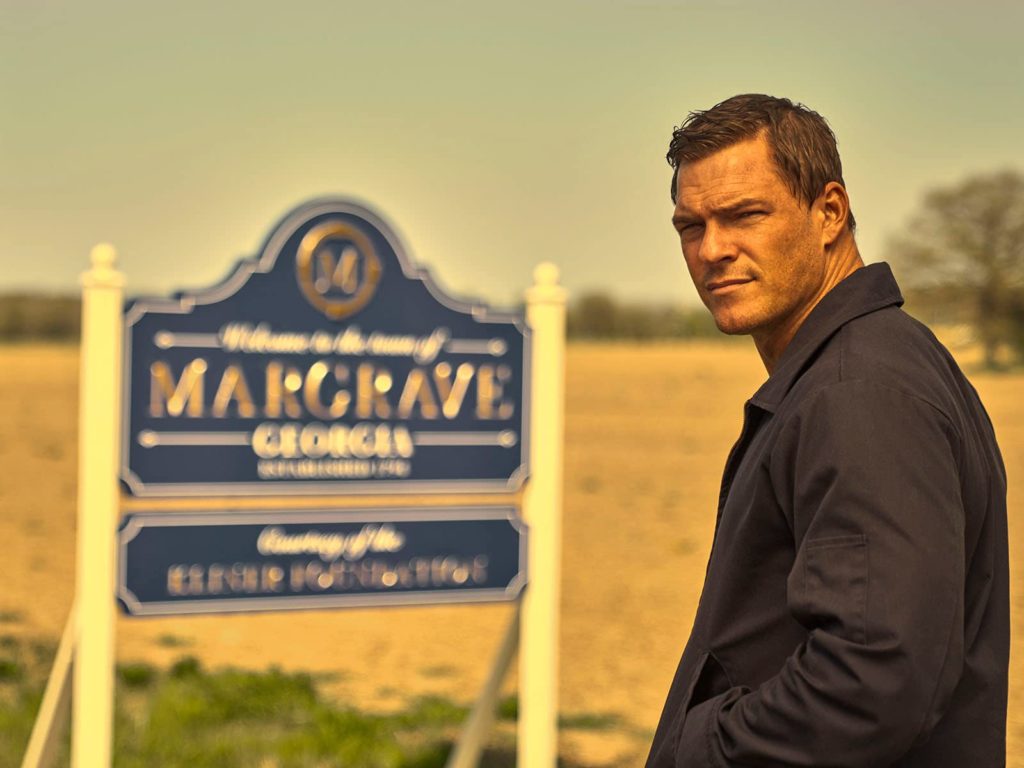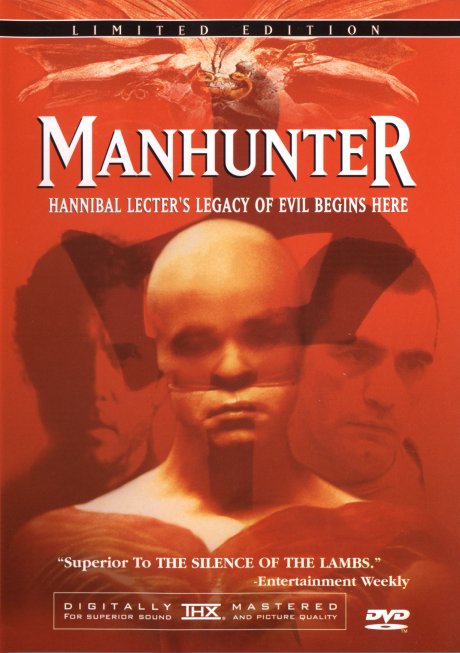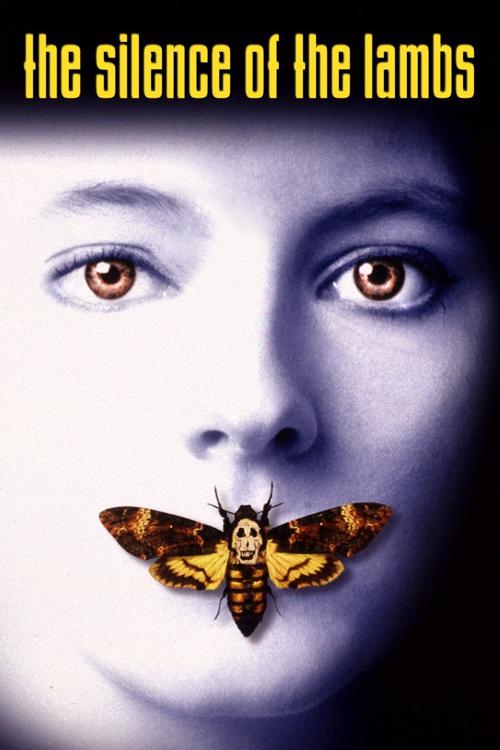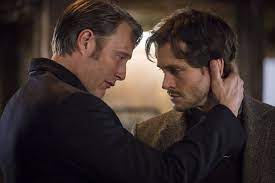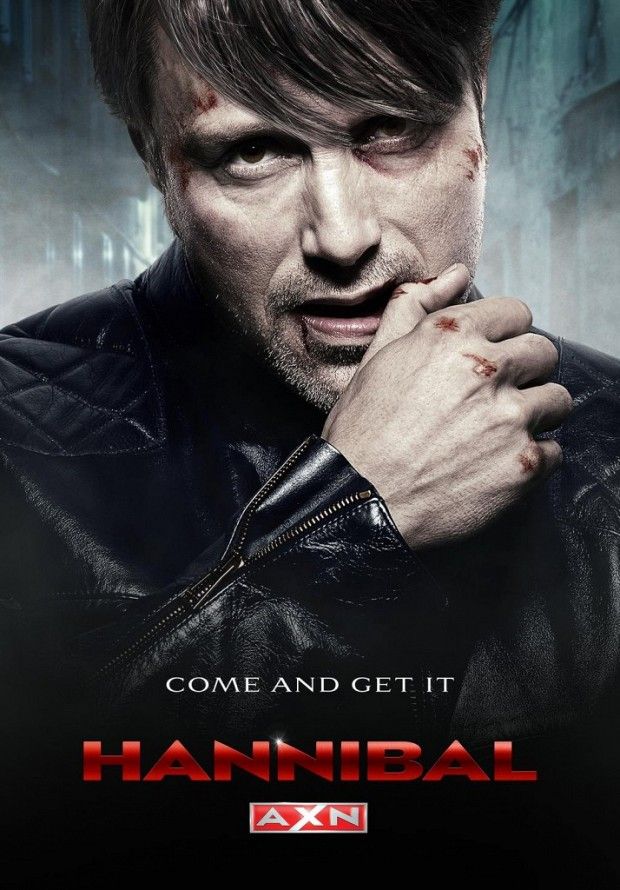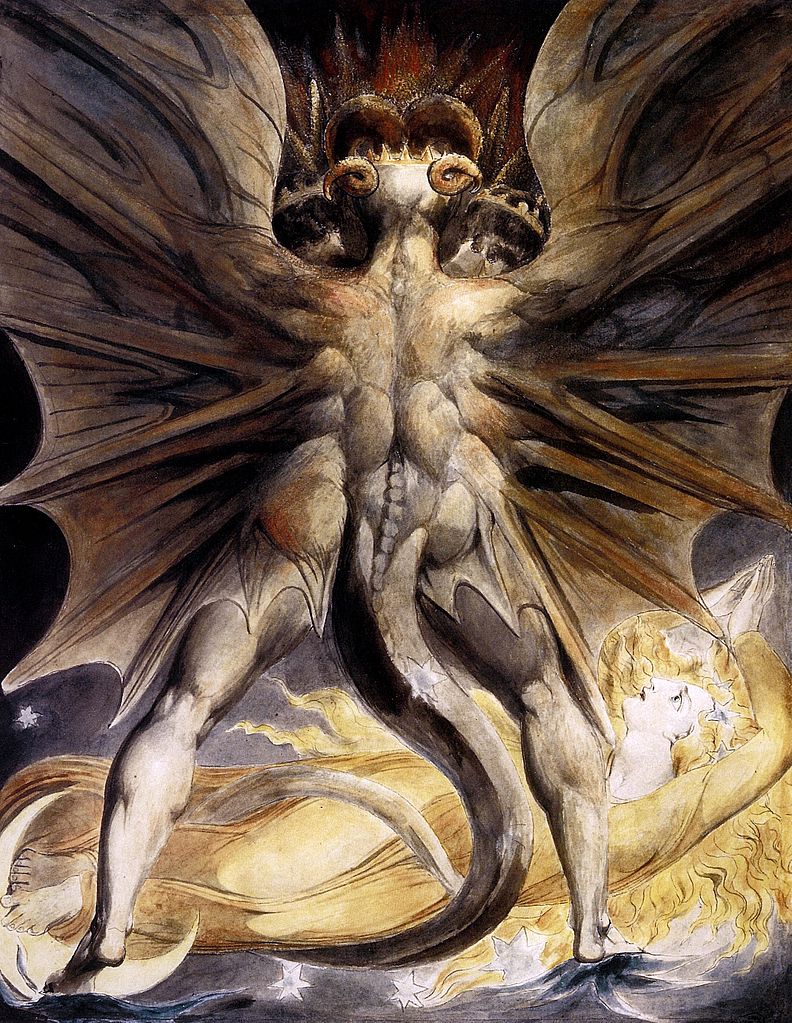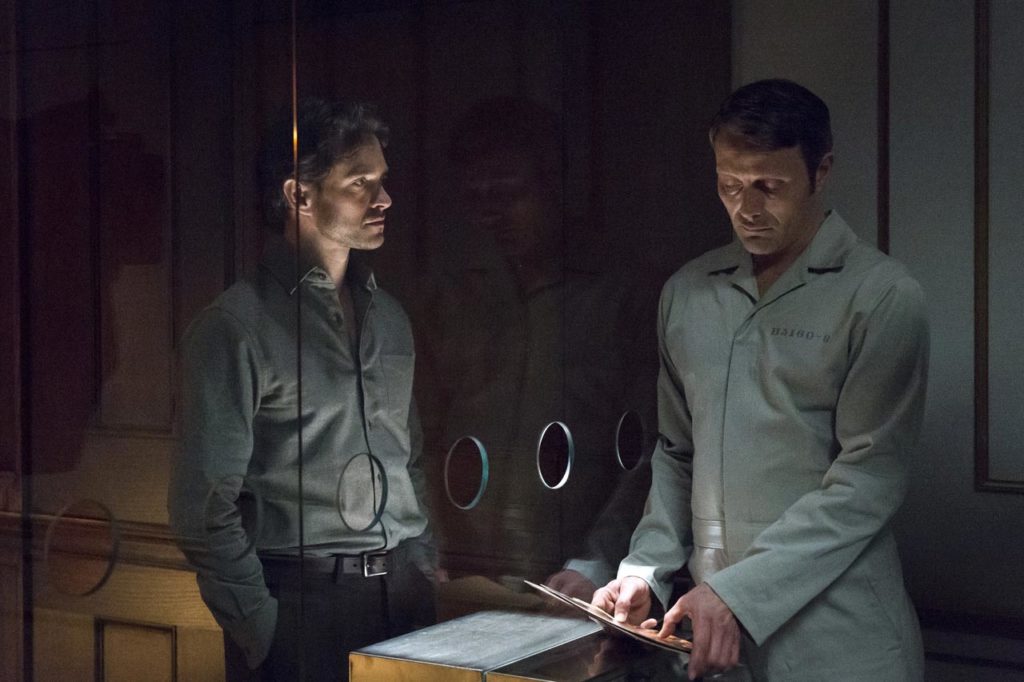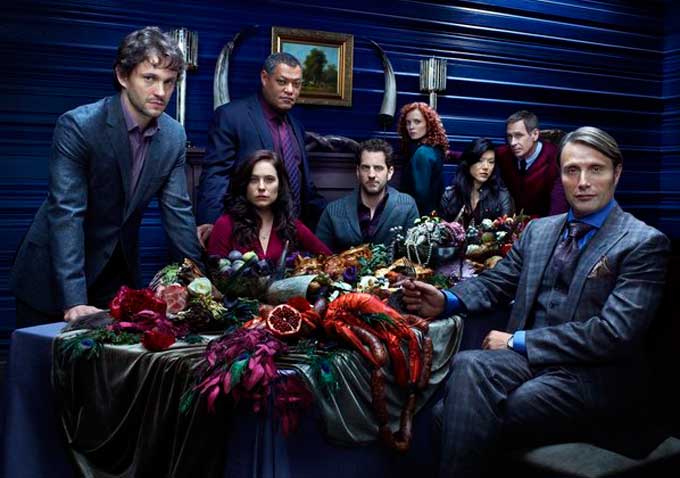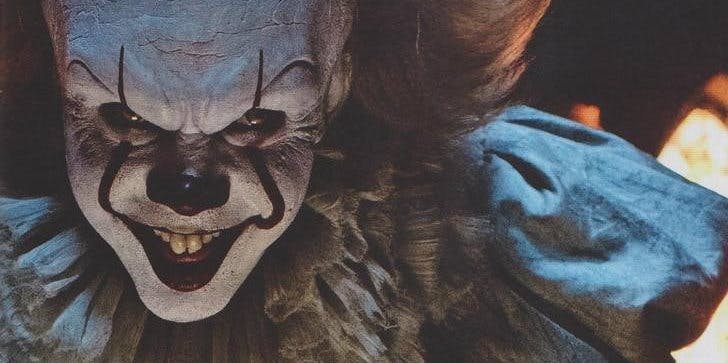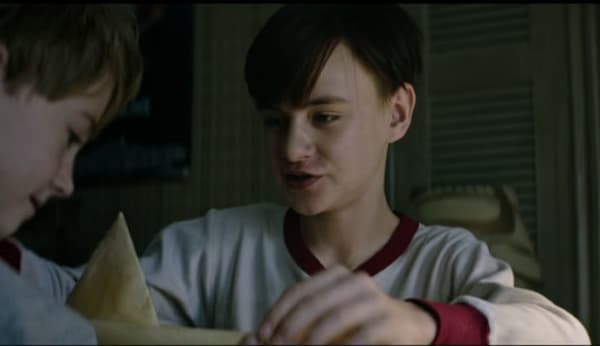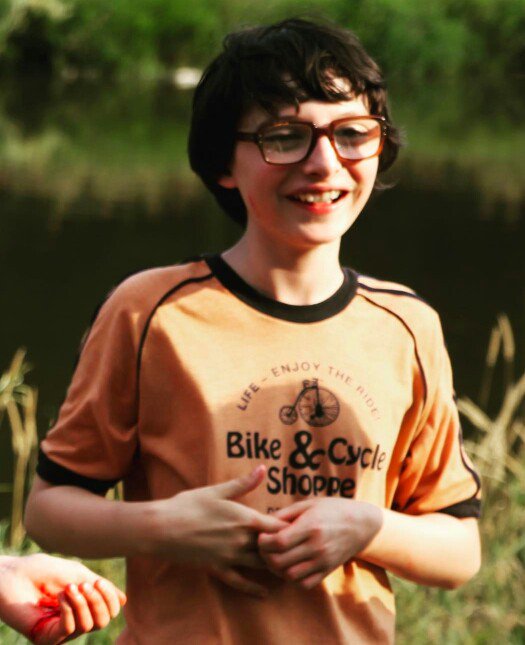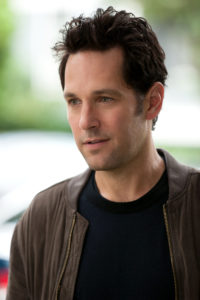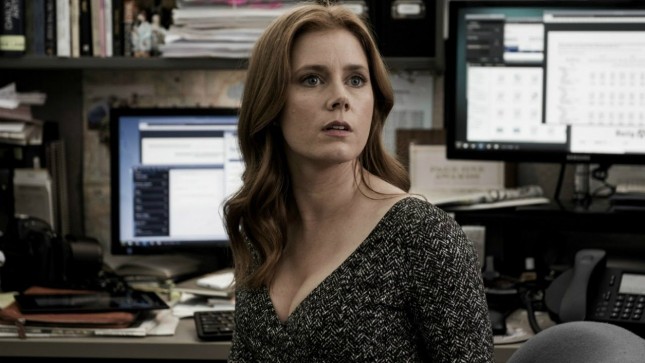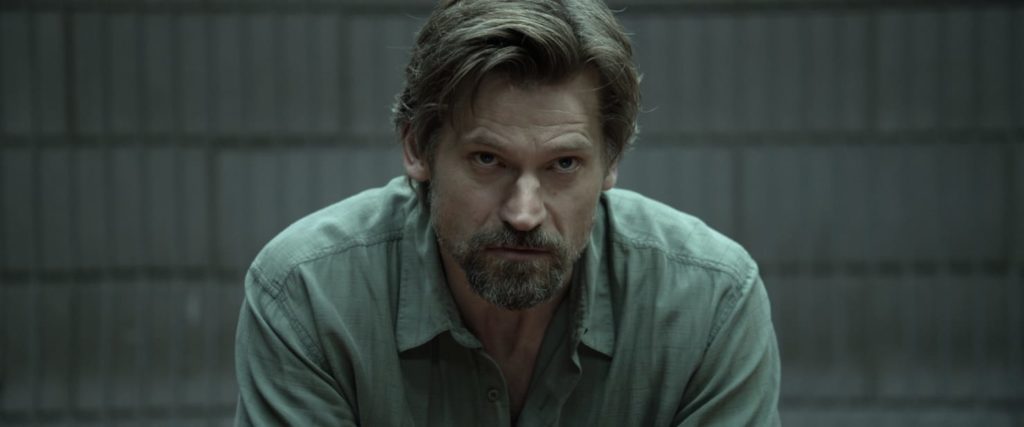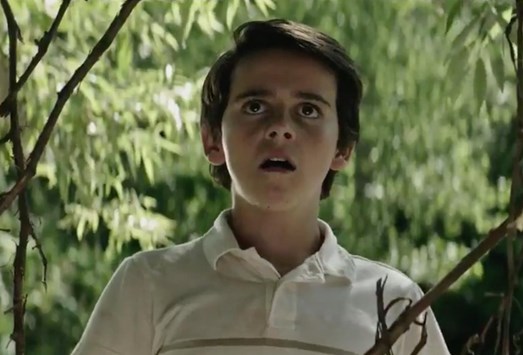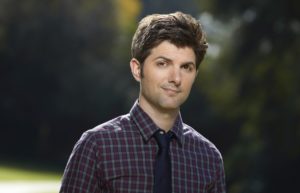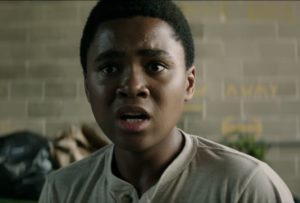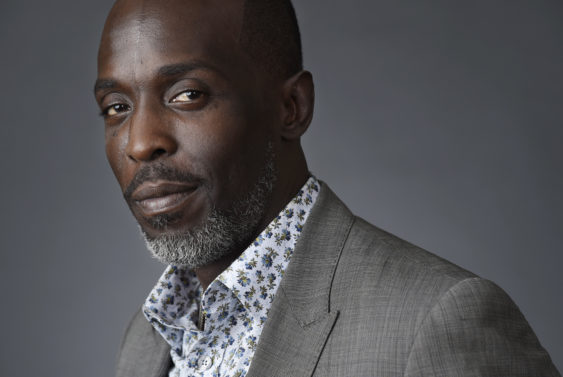Sheriff Clarence Barnes is the law in the small Wyoming town of Hillbrook.
Anthony Cantare is a hired killer who finds his way to Hillbrook after a job-gone-wrong.
Uriel is a man with no memories, and no place in the world, whose unending search for a lost past takes him to Hillbrook. These three strangers find their fates intertwined, even as a murderous militia group threatens to lay siege to the town.
But this looming incursion may not be as great a threat to them, as they are to each other.
PROLOGUE
Sister Eloise would never forget that stormy September night with thunder rattling the windows and lightning carving a gash through the darkened skies.
She had been with St. Michael’s in the Brighton Beach area of Brooklyn since it was a church, and stayed with it when it was converted into an orphanage nearly twenty years prior.
Early in her tenure she was placed in-charge of the day-to-day operations of St. Michael’s Orphanage, and it wasn’t long before she was looked upon by the other Sisters as their de facto leader. Sister Eloise had seen many things in her time at the orphanage, and many children pass through her doors. But she had never expected to come upon a baby in a basket, despite the outside world’s general notion that it happened all the time.
Most of the time there would be an expectant couple, or a teenage girl with her parents, who were not prepared to take care of a child. They would come to St. Michael’s, where Sister Eloise would hear them out, and then arrangements would be made for the child to be taken in. Some would want to name the baby before releasing them to the Sisters. Others preferred not to, often due to a fear that any added emotional attachment would make the process impossible to complete.
For the unnamed children, the Sisters would take turns picking names. Often, they would be named
after a currently popular actor or singer. And there were quite a few names that were picked out of a book that the naming Sister loved.
But on that September night, with the tempest raging outside, there were no frightened parents-to-be, and no disapproving grandparents-to-be with their frightened child. There was only the sound of a doorbell ringing, and then a basket sitting at the doorstep when Sister Eloise finally opened the door.
It was a large wicker basket stuffed with blankets, and only the cherubic face of an infant uncovered. Sister Eloise took a mental inventory to make sure that she wasn’t dreaming this evening. Finally, she picked up the basket and brought it inside, safe from the elements. The baby was not crying, or otherwise reacting in any way other than curiously glancing at the room and the face of the woman standing before him.
The baby’s apparent serenity added even more strangeness to an already surreal situation. As Sister Eloise was considering what the proper protocol for this scenario was, she spotted a note attached to the child’s blanket. ‘MY NAME IS WILLIAM’ the note read.
She took the child out of the basket and wrapped him in fresh towels from the linen closet. It was very late, and so all the other Sisters and children were asleep. Sister Eloise paced back and forth across her personal quarters with William until the boy had fallen asleep in her arms.
She was very tired herself, but did not want to put herself to bed until the child had a proper surname. Many names passed through her mind, but
none seemed quite right. At the point of exhaustion, Sister Eloise decided that the most fitting surname was her own. And so, the baby became William Conlan.
When Sister Eloise told the others about the basket baby, and the granting him of her own name, there was some concern. The first of which was the repulsion at the thought of the sort of people who would leave a baby on a doorstep without knowing if the door would even be answered. The other concern was regarding the emotional attachment that would come with Sister Eloise giving the boy her family name. But Sister Eloise’s judgment had always been above reproach, and soon that concern faded away.
Years came and went, and still St. Michael’s Orphanage was the only home that William Conlan had ever known. A small group of nuns had been his only family, and an ever-changing collection of children had been his friends. Every memory from the first ten years of his life was connected to this place.
And while William had been living there for at least three years longer than any other child, he was not angry or bitter at being passed over by so many prospective parents. He felt content, and happy to be of use to his home in any way that he could.
As a young boy, he would stay close to Sister Eloise at all times. The bond formed on that stormy night growing stronger with time. By the time he was seven-years-old, William was already helping to monitor the other children. He knew the ins and outs of St. Michael’s and the surrounding neighborhood,
and was always happy to help others become acclimated.
Soon, he was helping tidy up both the boys’ and girls’ wings, and making friends in both. As a general rule, the boys and the girls were kept separate whenever possible. But it was a rule that was happily bent for the smallest member of the staff.
At ten-years-old, and ten years at St. Michael’s, Sister Eloise and the others found themselves frustrated that William was not adopted. As kind and lovely a child as any of the Sisters had encountered, with chestnut-colored hair and eyes to match. The fact that he remained at the orphanage confounded the nuns.
It was Sister Eloise who seemed to crack this mystery after a time, when she realized that William was truly happy at St. Michael’s. She imagined that the adopting couples came in and saw a boy who did not want to be removed from the world he had created for himself. As glad as Sister Eloise was to keep William at her side, she still regretted that a normal life with a traditional family evaded him.
But William paid no mind to the occasional sad glances of the nuns. He would simply go about his business every day. He may have only been ten-years-old, but his tenure at St. Michael’s was longer than many of the Sisters’. The boy found boundless joy in his regular routines.
He would wake up before the other children in the morning, and help the Sisters prepare breakfast for everyone. Then, as the Sisters finished up with the food, William would get started setting the tables in the large Mess Hall. He would lay out the plates,
glasses and silverware on the long tables in the only room that the boys and girls would typically share.
When the first announcement over the loudspeakers called for everyone to come and get their food, William would walk through the dormitories and make sure that no one missed the first meal of the day. After breakfast, he would help clear the tables and wait until the others finished before taking his own turn in the showers. He was equally as involved in lunch and dinner.
There was a courtyard behind St. Michael’s with a playground in the center. William could sometimes be found climbing on the monkey bars, and playing under the basketball hoops. But more often, he would watch the other children play and make sure that none of them got hurt. Or, if they did, he was always the first person to check on them.
But what impressed Sister Eloise and the others the most was William’s behavior when prospective parents would visit. He knew all the children at least as well as the Sisters did, and so he would help greet the couples when they arrived. After meeting the couples, he offered some names to the nuns that he felt would be what they were looking for. The one name that he never offered was his own.
While William was a long way from eighteen, the Sisters worried what would happen if that time came. They were legally obligated to remove an orphan from St. Michael’s when they came of age. However, the opportunity to put that plan into effect never arose.
Sister Eloise was not about to turn William out onto the street, and she decided that if he was still
with them when he turned eighteen, then she would offer him the chance to stay with them as a member of the staff for as long as he wished. Though, she still prayed every night that the time for this would not come.
St. Michael’s may have been the only shelter that William ever wanted, but even it was not sheltered from the outside world. One day, not unlike any other, the wolves made their way to the door.
It was a glorious summer morning, and all of the children were taking in the sunlight on the playground. It was warm but not humid, and the breeze would blow the heat right past the children whenever it got too hot. William was playing Freeze Tag with three other boys when he got thirsty, and decided to run over to the hose for a drink of water.
He sprayed the cool water in his face, before opening his mouth and quenching his thirst. He shook the water out of his hair when he heard Sister Eloise talking to someone at the side of St. Michael’s. She was using her stern voice, which William had heard many times before when he, or another child, got out of line.
Curious about who might be getting in trouble this time, William peered around the corner and saw Sister Eloise speaking with a man in a suit. The man’s back was turned to William, but the strange markings on the man’s hand caught the boy’s eye.
William had no way of knowing that each tattoo represented another of the man’s many crimes. Among them were playing cards, and some strange shaped stars. But it was a tattoo of a cat with its fangs bared, wearing what looked like a pirate’s hat, that
really made the boy curious. After reading Puss In Boots many times, William was suddenly interested in whatever this man had to say.
It was hard for him to understand the man at first, as he spoke with a very heavy accent. After a few more words, Williams identified the Russian accent as one he had heard on the streets many times before in Brighton Beach. The meaning of the conversation itself remained elusive to the boy.
“Is very simple,” the man said around his accent. “You pay for service, or there is problem.”
“What kind of a monster are you?” Sister Eloise asked. “This is an orphanage! We don’t have any money. We only have what the church gives us.”
“Then you give us part what church gives you,” the man replied.
“So, you want our canned goods and blankets?” Sister Eloise said with exasperation.
“No, no,” the man with the cat on his hand replied. “This is no good. Our service is not cheap.”
“And what exactly would you be protecting us from?” Sister Eloise scoffed. “Other than yourselves.”
The man rolled his neck, eliciting a series of cracking noises. He then grabbed his right fist with the cat in the hat tattoo and popped his knuckles. “You will give us product.”
“What sort of product do you think we have here?”
“Is very in-demand product. Will cover what you owe for a while.”
“I am going to call the police. I suggest you leave before they get here,” Sister Eloise said as she turned towards the side entrance.
“You give us child,” the man said, just as she turned her back to him. “One, maybe two. And we leave you alone for little while.”
Sister Eloise stopped in her tracks. When she turned to face the man again, the fury in her eyes seemed to burn even brighter when compared to the absolute stillness of her body. Without a word, she walked over to the man and cracked him across his face with the palm of her hand.
William had never seen such anger from her before, and he became frightened.
The man seemed to stand up taller than he previously was, as if he was preparing to deliver a strike of his own.
“You will reconsider,” the man finally growled.
“I will never!” Sister Eloise replied. “Now get out of my sight. A thing like you has no place standing near a house of the Lord.”
“I gave you chance,” the man said. “What happens now, you have done.”
The man with the cat tattoo walked past Sister Eloise, who had her fists clenched in a rage.
Unsettled, William walked back towards the playground and took a seat in a shady spot under a tree. After a few minutes he saw Sister Eloise come around the corner and give instructions to another Sister. She passed through the fence entrance, while William quickly and silently slipped out behind her.
He followed her from a safe distance as she walked five blocks to the local police precinct. William watched from a concealed spot behind a car parked across the street. Sister Eloise remained in the Police Station for nearly thirty minutes. When she came back out, she seemed even angrier than when she had entered it.
After returning to St. Michael’s, Sister Eloise locked herself in her private quarters for the remainder of the day. William had never seen her in such a state before, and his worries kept him from sleeping that night. As he lay awake in bed, William heard a cat meowing outside the window.
The cat was a neighborhood stray, and a few nights every week it would come calling. On these nights, Williams would sneak down to the kitchen, grab a few slices of turkey, and then crawl out his window to feed the cat.
He was grateful that the animal had come tonight, as he was in no mood to sleep. So, William grabbed some turkey, and shimmied his way down the water pipe outside his window. But when he reached the ground, the cat was nowhere to be found.
William figured something must have scared it away, so he began tearing the turkey into smaller bits and making kissing sounds to lure the cat out. He was in-front of the apartment building next to St. Michael’s when the explosion knocked him off his feet from behind.
He spun onto his back and saw the flames already engulfing the building. William ran screaming towards St. Michael’s, even as it was being devoured
by flames. He managed to run around the flames to reach the front door, only to find it chained and padlocked.
With the heat nearly suffocating him, William still managed to run to the side entrance, only to find it equally sealed off with heavy chains and padlocks. The fire escape around the back of the building had been made unusable by the initial explosion. William called out to the others inside, only for his calls to be met by frightful and agonized screams.
William ran back to the apartment building next door and began ringing every buzzer. Finally, one tenant buzzed him in. The boy ran to the open door and begged the man who opened the door to call the fire department.
The boy watched out the apartment window, as the screams began to subside. Before the fire trucks arrived, St. Michael’s had collapsed into a mountain of flaming rubble. William’s eyes went wide and his body numb as his entire world was reduced into flaming cinders.
When William was brought to the same Police Station that he had seen Sister Eloise venture to earlier that day, he was taken to the office of a detective. After he was given a glass of water and seated, the detective entered the room.
“You’ve been through a lot,” the detective said, but William just stared blankly ahead.
“Are they all dead?” the boy asked flatly.
The detective weighed his response for a long moment before replying. “I’m sorry, son.”
William’s shoulders dropped heavily, and his eyes turned towards the floor.
“Do you have any idea who might have done this?” The detective asked.
“The man with the cat on his hand,” William replied, never lifting his gaze from the floor.
“Are you talking about an actual cat?” The detective asked. “Or a tattoo? A drawing on his skin?”
William nodded after the last part.
“Shit,” the detective muttered under his breath.
As the detective leaned back in his chair, William felt that the man’s look of helplessness matched Sister Eloise’s look of fury earlier.
Before he was able to continue, another police officer opened the door to the office.
“Sorry to interrupts, sir,” the other officer began. “But they need you in the other room with one of the apartment tenants.”
“I’ll be right back,” the detective said to William before walking following the other officer out the door.
After a few moments another man entered the office and closed the door behind him. He was a tall man with short blonde hair, and blue eyes.
“You must be William,” the man said, as William’s eyes remained downturned. “I am Father Luke. Would you like to help us get retribution for what was done tonight?”
William finally looked up at the man, and gave him a determined nod.
“Then come with me,” Father Luke said, as he extended his hand to the boy and led him out the door.
A few minutes later, the detective returned to his office and – upon noticing William was gone – called out into the hallway. “Hey, where the hell did the kid go?”
PART ONE
HILLBROOK I:
ANTHONY CANTARE
Anthony Cantare was not accustomed to setbacks, especially in regards to his work. He was a perfectionist who plotted out every aspect of his assignments before he even formally accepted them. Many other people in his line of work would be forced to take a job on the spot, lest they miss out on the payday.
But Cantare was the best, and anyone who had the means to get in-touch with him would have to know that. He had spent years building a very exclusive network of contacts, and no potential employer without the money, status, or both could get anywhere near them. In fact, some of those contacts had learned very severe lessons by bothering Cantare with job offers that he’d deemed beneath him.
This last job nearly fell into that category, and the contact who had brought it to Cantare nearly took a fall of his own. Taking out a domestic militia nutjob was something that any redneck with a shotgun, big balls, and nothing to lose would be able to do. Even as Cantare lurked behind this contact with his thumb and forefinger on the hilt of the blade that he’d always kept concealed on the inside of his left sleeve, a bit of information was revealed that saved the man’s life.
The employer for the job was a Wyoming senator, and Cantare always gave politicians preferential consideration, as they always paid considerably well. Cantare also warmed at the thought of holding a favor over the head of a senator. Sure, he had done jobs in the past for more run-of-the-mill politicians. But here was a man who had larger aspirations. Pennsylvania Avenue aspirations. And that was something that Cantare could not resist.
The payment for the assignment would be an even five million dollars, which was not the highest that Cantare had ever charged for a job, but seemed a little high for this kind of work. So, Cantare gave the senator a “maybe”, and then did his research on the target. It was through this that Cantare began to understand the lofty price, and the lofty man who wanted the target eliminated.
Randall James Marshall had more than just a people’s militia or a survivalist group. He had a private army, and one which was comprised of people who saw Marshall as a teacher, a preacher, and a savior. Marshall had built a village deep in a well-protected valley, surrounded by the Laramie mountain range. He preached to his flock about the glorious new world that they would build after all the spiteful, spineless heretics sunk the old world into Armageddon.
Marshall and his followers had built the village seven years prior, and adopted the title of Marshall’s Militia. There, they would live and train to become the equals of the great armies of old. And their glory
would breed a new world, a stronger world that would bury all memory of this weaker world.
No one outside of Marshall’s compound had been able to make an accurate count of how many people were currently living there. But estimates from satellite surveillance claimed at least sixty-five people, including women and children.
The fact that Marshall’s Militia compound was considered too perilous to attack with an outside force was the other thing that caught Cantare’s eye. Marshall was not seen as a direct threat by the Powers-That-Be, and the fact that his village was situated in an area that would no doubt cost many members of an invading force their lives, made any attempt a no-go from the start.
The good senator had tried to convince his peers otherwise many times. He would claim that Marshall was a time-bomb about to explode at any moment. And that the children raised in the ways of the Militia would ensure that Marshall’s legacy would live on and poison future generations. He had campaigned that the compound be razed before it became an infected abscess that bred a wave of domestic terrorism. But his calls to action fell on deaf ears.
Cantare believed – to a degree – that these were the reasons why the senator wanted Marshall eliminated. But Cantare also figured the true motive was that having Marshall’s Militia in Wyoming was a black eye on the record of a man who had his sights set on The White House.
The contract was only for Marshall, as the senator believed in chopping the head off the serpent to kill the body. Cantare’s job description did not
include caring about whether or not his employer’s theories were valid. He was paid to end lives. Any of the fallout from that was someone else’s concern. So Cantare took the job.
Payment was always made before preparations had begun. Anthony Cantare had no interest in killing people for free, so he made sure that the money was in his hands before the blood was on them.
The senator had to make the cash drop alone, and Cantare would stay hidden in the shadows during the exchange. This was Cantare’s protocol, more to study his employers than anything else. Watching a man’s mannerisms, and listening to his word choice while he was paying someone to do his killing for him made Cantare feel like he could see into their souls.
The senator, like all of the politicians who had hired Cantare before him, came dressed in dark clothes with his face hidden behind sunglasses and a hat. Cantare always got a chuckle when he imagined these people coming to see him in those flashy suits and power ties that they always wore to their press conferences. But the only people who ever dressed up for these exchanges were underworld types who more-then-likely kept a stash of money to be used exclusively for hired killings.
The senator seemed nervous – as many of them did – but Cantare did not feel like he was scared of the professional killer lurking in the shadows. He believed that the senator was beginning to fear possible retribution from the other dwellers of Marshall’s Militia. Cantare was not in the habit of telling his employers about his methods, but he did assure them that the killings would not be traced back
to them. In this case, he also told the senator that the death would seem to be due to natural causes.
With as few words as possible, the exchange was done, and Cantare began to gather his resources. Since he had no real desire to travel back to Wyoming, he had decided to set his plans in-motion directly after the meeting. And so, with one suitcase of clothing, one suitcase of tools, and one duffle bag containing five million dollars, he set about his purpose.
Cantare fancied himself as something of an artist. He could take out a target in nearly any type of environment from just over five-hundred-meters with a sniper rifle, but he liked to mix things up. Throughout his career he had used nearly every method of death available.
He had electrocuted a mafia snitch, and strangled a cop on the take who wasn’t earning his keep. He had poisoned a congressman during a dinner at a high-end restaurant, and fed a South American dictator to his own pet piranhas. He had borrowed the M.O of an at-large serial killer to take out a pesky murder witness. He did what he could to keep his work stimulating for himself.
For Randall James Marshall, he decided that suffocation would do nicely. It would be silent and neat, with no clean-up or flashes. The last thing he needed was half a dozen militia nuts kicking down the door and blasting away at him.
Cantare was cocky about his skills, but he wasn’t stupid, and he wasn’t bullet-proof. The tough part of this job would be locating where Marshall slept, and then gaining access to him without interference.
Before meeting with the senator, Cantare had traveled to the vicinity of the Marshall’s Militia compound. He’d spent several days and nights scouting the area to develop a basic game plan. It would be a challenge, but not as daunting as he initially believed.
After accepting the job, Cantare flew into Colorado and made a cash purchase of a used white van in Denver. It was early March, and snow still covered much of the area – so white would be the best camouflage. He then travelled to a suburban shop and bought a top-of-the-line snow mobile. From there he loaded the snow mobile into the van and made the drive to Wyoming.
Cantare stopped the van near the stretch of highway that offered the best access point to the compound’s valley. He didn’t want to raise any suspicions, so he pulled the van far enough off the road where it would not be seen from the highway and slept in the back.
Using the satellite images and coordinates given to him by the senator, he decided that he was close enough to make the trip with the snow mobile. The vehicle was silent and fast, but Cantare still left it nearly half a mile away. He had set up his own camp near the snow mobile and made several trips to Marshall’s compound over the course of a week.
Using that time, he studied the layout. There was a supply shed in the middle of the village, and the cabins all grew out of that central location. A dozen jeeps and pick-up trucks were parked in the street.
Every man and woman carried guns at all times, and there was a round-the-clock lookout.
Generally, the lookouts would be stationed at the edge of the village with a rotation every three hours. Cantare decided that the shift change would be the best time to gain access to the compound. He ventured in one night while two lookouts were chatting during the transition.
These people were trained, but not nearly as efficiently as they could have been. Cantare spent three days and nights in their vicinity, and the closest he felt to harm was when he heard several gunshots from militia men hunting for food nearly a quarter of a mile away. By his count, the compound contained thirty-four men who were in their late teens and over, twenty-nine women and fourteen children.
Marshall’s cabin was built directly out of the side of a mountain. It wasn’t noticeably bigger than the other cabins, but it did have two guards outside its front door at all times. But Cantare found a very narrow foot trail leading down the mountain towards Marshall’s roof. This cabin, like all of the others, had a chimney and Cantare knew this would be his best point of entry.
When night had fallen once again, Anthony Cantare moved towards the compound. The only real weapons he had on him were a silenced .45 and his trusty hidden blade. He had also packed a pair of night vision goggles, a rag, and a bottle of chloroform.
He gained access to the mountain that Marshall’s cabin had been built next to during the 2 AM shift change, and followed the narrow foot trail down to
Marshall’s roof. After putting on the night vision goggles, he braced himself against either side of the chimney, and made his way into Marshall’s cabin.
The chimney led into a living room populated by four couches that formed a square around a round table. There was a lot of shelving built into the walls, most of which contained books, blueprints, and maps.
There was no television, but a transistor radio, and a CB radio sat next to each other. Most of the books were non-fiction selections about war, survival, and legendary leaders. Cantare knew that if he lived in this shitty little cabin, and was forced to use the series of outhouses lining the street, he would shoot himself out of boredom and disgust inside of a month.
A long counter separated the living room from the kitchen, and past the kitchen was a short hallway that would lead to the bedroom. Cantare turned the door knob and pulled the door open only a few inches.
He examined the room and his eyes were instantly drawn to the thin wire stretching across the door about five inches off the ground. Once he discerned that the wire wasn’t connect to the door in any way, he opened it wider, stepped over the wire, and into the bedroom.
Due to his earlier surveillance, Cantare knew that Marshall always slept alone which only made his job that much easier. He stood at the side of Marshall’s bed for a few moments, taking a look around. He pushed away a small sense of disappointment when he told himself that it was the easiest five million dollars he’d ever made.
Finally, he took out the rag and soaked it in chloroform. He pressed it firmly against Marshall’s mouth, and squeezed his nostrils shut at the same time. He held tight for four minutes, before finally taking a pulse and confirming that this wannabe savior was indeed dead.
Not being in any particular hurry, Cantare stood over his latest victim for a few minutes before leaving the bedroom, and closing the door behind him. He made his way back to – and up – the chimney, and was on the foot trail in minutes.
He made it up to the snow mobile, where his camp was already packed up, and tied to the back of the vehicle. After cutting his ways through the darkness, Cantare pushed the snow mobile up the ramp into the van, and drove off into the night.
He planned to drive the van back to his home which was located just north of San Francisco. He had installed a fireproof sub-cellar where he disposed of vehicles and other unneeded objects. Though he figured he’d keep the snow mobile, as it promised some future use – either personal or professional.
Cantare had driven less than two miles down the highway from where he had hidden the van when his plan took a hit. The engine of the van began to smoke and eventually just stopped. Cantare was skilled in many things – including mechanics – but what he found under the hood could not be fixed, only replaced. He considered what options he may have, including how far the snow mobile could take him, but finally decided that his options were nonexistent.
Using his map, Cantare found the nearest town to be Hillbrook, Wyoming. He called the local mechanic with one of his burner phones, and requested a tow. After an hour’s wait, Cantare spotted the tow truck approaching. It stopped in-front of the van and the driver, a tall, thick-bellied man in his late-forties stepped out. He wore a heavy flannel coat and a ball cap that read Jay’s Auto Stop as he walked up to Cantare.
“You must be the fella that called me,” the man said.
“I must be,” Cantare replied coldly.
“I tell ya what,” the man started. “It’s a good thing that I live in my shop. I’d hate to think that you’d have to stay out here all night.”
“My lucky night I suppose,” Cantare replied. “If you live in your shop, I’m guessing that you’re Jay.”
“That I am, sir,” Jay answered. “And you are?”
“Cantwell,” Cantare lied. “Adam Cantwell.”
“Well Mr. Cantwell, let’s see what we got here,” the man said as he approached the hood of the van.
Cantare walked up behind the man, and he felt his pistol in its holster at the small of his back. He thought about putting one in the back of Jay’s head, taking his tow truck to the next town past Hillbrook, and securing another vehicle that could get him to an airport. But he quickly thought better of it, as it’s hard to be inconspicuous in a tow truck with Jay’s Auto Shop spray painted in lime green on both doors.
“Transition’s definitely shot,” Jay deduced.
“Have you got what you need at your shop to get it up and running tonight?” Cantare asked.
“I’m afraid that I do not,” Jay said regrettably. “I’ll have to order the part from Jackson Hole.”
“How long will it take to get the part?” asked Cantare.
“Day or two at most. As long as they have it in stock,” replied Jay.
Cantare, annoyed by this response, briefly considered shooting Jay again. But, ultimately, thought better of it.
“You came from Hillbrook, right?” Cantare asked.
“Yep.”
“They got a motel there?”
“Don’t really get enough visitors for a motel. Got a bed & breakfast though.”
“I suppose that will have to do.”
“I think you’re in for a treat. Helen Delaney runs the place, and she makes a heckuva an omelet.”
“That sounds,” Cantare started as he caressed the handle of his pistol again. “Just fine, Jay.”
“You wanna ride with me?” Jay asked.
“How far is it?” countered Cantare.
“’Bout twenty minutes.”
“You know what, I think I’ll stay in my van. I have some important items in there.”
“You can bring ‘em with you into the truck if you like.”
“I’ll be fine.”
“Your call.”
Jay hooked up the van to his tow truck, as Cantare climbed behind the wheel of his vehicle. As the truck began pulling the van, Cantare placed his
hand on the duffle bag containing the Senator’s payment. Five million dollars for a cakewalk job and a layover in bumblefuck Wyoming seeming fair enough to him.
HILLBROOK I:
SHERIFF CLARENCE BARNES
Hillbrook, Wyoming – population 452 – was not what Sheriff Clarence Barnes had envisioned when he began his career in law enforcement. He was, in fact, offered his desired post as a homicide detective nearly seven years prior. He was younger than most detectives at the time, but was offered his shield when he ended the rampage of a notorious serial killer.
The man who the media dubbed The Brute had murdered seven girls between the ages of sixteen and nineteen-years-old. He was given the name because his method of murder was always blunt force trauma to the head and neck of his victims. The nightmare lasted just over a month before Barnes, then just a patrolman, had stumbled upon The Brute and his latest victim.
A stand-off that seemed to last an eternity in Barnes’ mind, and a full magazine of bullets later, The Brute was dead. Detective John Fern was the lead investigator on the case and, upon his endorsement, Barnes was offered the title of homicide detective.
Interview requests came through en masse on a daily basis, and every newspaper headline ran a photo of Barnes with the word Hero nearby. It was Clarence Barnes’ time to shine, but instead he merely faded
into the infinite blackness that he had seen in The Brute’s eyes.
After being given some time off, and turning down every interviewer who came to his door, Barnes had come to a decision. He decided that he did not want to spend the rest of his life staring into that deep void of a killer’s mind.
Perhaps he once thought that he could face it down, and bring justice to the dead. But he had a wife, a young daughter, and another child on the way. So, when Clarence Barnes offered his resignation, Detective John Fern once again offered his help. Only this time it was in the form of advice.
Detective Fern had told Barnes about the town where he’d grown up: A small, quiet village called Hillbrook. The fact that it was located in Wyoming gave Barnes pause, as he and his wife had grown up in cities and suburbs. He was afraid that the mountains and wide-open spaces would hit them with culture shock.
But Fern assured him that Hillbrook was more of a suburb than anything else, and he still had people back there who would gladly give Barnes a post. Fern finished his pitch by telling him that he would always have a spot waiting for him with the LAPD.
Barnes had a long conversation with his wife, Diana, about the opportunity. And while she was reluctant to leave the life they knew behind, she also believed that her husband needed this. She had met Clarence in high school and, in that time, he had never once asked something for himself. He was a strong and independent man who was not accustomed to asking for help.
She had seen the change in him since he faced down The Brute. The way the weight of his experience bore down upon him. Clarence had taken on a case that was very personal to him afterward, but this only proved to be the final handful of dirt on the grave of their lives in Los Angeles. And so, they packed up their modest apartment and drove a U-Haul van out to Wyoming.
When they arrived in Hillbrook they were greeted by Mayor Bob Phillips and other local leaders. This welcoming committee was comprised mostly of the local shop owners. Beyond the town leaders were the other residents of Hillbrook, the total amount of which added up to less people that most of the parades that the Barnes family had attended in Los Angeles.
“Welcome Mr. and Mrs. Barnes!” Mayor Phillips said, as he vigorously shook Clarence’s hand.
“Or should I say Sheriff and Mrs. Barnes?”
“You must be Mayor Phillips,” Barnes replied.
“Indeed, I am,” Phillips confirmed. “But please, call me Bob.”
“Then you’ll have to call me Clarence.”
“I sure will,” Mayor Phillips smiled. “Johnny Fern told me some wonderful things about you.”
“He’s a good man,” Barnes followed.
“He said the same of you,” Mayor Phillips then turned his eyes to Clarence’s wife and daughter.
“Bob, this is my wife Diana,” Barnes started. “Diana, this is Mayor Bob Phillips.”
“A pleasure Mr. Mayor,” Diana said as she took his outstretched hand.
“The pleasure is all mine ma’am,” Mayor Phillips countered, and then turned his eyes towards their five-year-old daughter. “And who is this lovely young lady?”
“This is Debbie,” Diana said. “Debbie, say hello to the mayor.”
“Hello, sir,” Debbie said, while holding her mother’s leg.
“Welcome to Hillbrook, sweetheart,” Mayor Phillips greeted. “And I see we’re to have another new resident soon,” he said, as he winked at the visibly pregnant Diana.
Diana nodded and laughed softly.
“Well, come on,” Mayor Phillips continued. “Let me introduce you to everyone.”
The Barnes family followed the mayor into the crowd, where they were met by the shop owners first, and the other residents shortly afterwards.
Hillbrook was almost a literal one-stoplight town. The center of town amounted to two main roads – Main Street and Hillbrook Avenue – that met at a four-way intersection. Main Street ran north to south, and so above the intersection was called North Main Street, while below was South Main Street. Hillbrook Avenue ran east to west and so was broken up into East Hillbrook Avenue and West Hillbrook Avenue.
All of the shops ran along one of these two roads, as did the Town Hall and the Sheriff’s Station. At the top of North Main Street sat Helen Delaney’s Bed & Breakfast. Walking south from the bed & breakfast one could find a number of shops that
included the local book shop, grocery store, hardware store, bakery, and clothing shop. At the south end one could find the town pub which was owned by Lenny Macklin, and Jay’s Auto Shop.
Town Hall and the Sheriff’s Station sat next to each other at easternmost point of East Hillbrook Avenue. Stretching west were the hair salon, diner, pharmacy, and other shops that culminated on the far west end of West Hilbrook Avenue with Doctor Walter Fahey’s office. The fact was that a person could walk from the top of North Main Street to the bottom of South Main Street – or from the end of East Hillbrook Ave to the end of West Hillbrook Avenue – in just over fifteen minutes.
There was no local schoolhouse, as all of the town’s children would attend the schools located in the next nearest town. Pineville was about a twenty-minute drive down the highway, and was a much larger town. There they had larger public schools, a hospital, department stores, a movie theater, and all the other general necessities.
The homes lay beyond Main Street and Hillbrook Avenue, surrounding them almost as one would circle the wagons to fend off an attack by the natives. This was, in fact, the original settlers’ intention. The ends of North and South Main Street fed into exits where people could pull in from, or out to, the highway. The East and West points of Hillbrook Avenue led to the homes of the citizens.
The domestic areas of Hillbrook formed a circle around the center of town, breaking only at the highway entrances. The homes themselves rested on small roads which stemmed out from East and West
Hillbrook Avenue, and all ended in cul-de-sacs. There was also a narrow walkway and fence that encircled the center of town behind the shops, and separated it from the housing areas.
Out past the houses were the mountains, which rose gloriously and penetrated the clear, blue sky. As sheriff, Clarence Barnes was given a home located off of East Hillbrook Avenue. Barnes could, in fact, see the Sheriff’s Station from his bedroom window.
The house was a good sized, three-bedroom, two-bathroom construction. The living room had broad windows on three sides and lead directly into a new refurnished kitchen. There was a cellar, den, attic, and one bathroom on each floor. The stairway led to an upstairs hallway with one bedroom on either end, and a third bedroom across from the upstairs bathroom.
Clarence and Diana felt guilty at first, but those feelings were assuaged by the mayor’s claim that since Sheriff Barnes was going to keep their town safe, the least they could do was put a roof over his head. Before long, their new lives were laid out before them.
He and his wife would still read the news from L.A. on a daily basis, but they had settled nicely into this life. Debbie and her younger brother Brian, both attended the schools in Pineville, and racked up good grades on every report card. While Diana had taken a job as a middle school teacher in Pineville.
Clarence shared the Sheriff’s Station with his two deputies: Craig Marx and Tom Oswalt. Deputy Marx had come from a military background, and was a young man who took his post very seriously.
Meanwhile, Deputy Oswalt was a local kid whose family had lived in Hillbrook for four generations. Oswalt had an easy way about him, and would spend most of his day at the station monitoring the radio. Barnes had figured that, if he were ever in a firefight, he’s rather have two Deputy Marxes with him. But since this was Hillbrook, he felt comfortable enough with the mild-mannered, if sometime lazy, Deputy Oswalt.
Sheriff Barnes began this day, as he did all his others, at 6 AM sharp. The alarm clock beeped, so he rolled out of bed and into the shower. By the time he was finished with his morning grooming routine Diana would be awake and preparing breakfast for Clarence and the kids.
Breakfast and dinner were the only times of the day that the entire family was able to sit together, and so they always used these opportunities to catch up. Debbie’s twelfth birthday was coming up soon, and she had invited many of her friends over for it.
“So how many are we expecting on Saturday?” Barnes asked his daughter.
“All of them,” Debbie smiled slyly.
“That sounds like an awful lot,” Barnes smiled back.
“I think it’s going to end up being fifteen in all, hon,” Diana chimed in. “Does that sound right?”
“I guess so,” Debbie replied.
“What time is this shindig set to start?” Barnes asked.
“I wrote noon on the invitations,” his wife answered.
“Is there gonna be cake?” Brian chirped.
“Well, is there?” The sheriff asked his daughter with a sideways grin.
“There’d better be,” Debbie playfully warned.
“There will be,” said Diana, as she leaned over to her son. “A big, ice cream cake.”
“Yes!” Brian yelled with a fist pump.
“I ought to get on my beat,” Barnes said, as he checked his watch. “And you ought to get to school.”
“Boo!” Debbie said with a roll of her eyes.
“Yah, boo!” Brian followed his sister’s lead, as he often did.
“Yeah, yeah,” the sheriff chuckled before standing up and kissing both of his children on the forehead.
“Book club tonight?” he asked as he leaned in to kiss his wife.
“Every Wednesday and Friday,” she replied.
“And today is Friday, isn’t it?” Barnes said with a smirk. “Now that I think about it, I have some paperwork to catch up on at the office tonight,” he finished
“Why is it that you always have paperwork to catch up on Wednesdays and Fridays?” Diana asked with a grin as she kissed her husband.
“It’s terrible, isn’t it?” Answered Barnes. “But at least you have your book club friends to keep you company on those evenings.”
“What luck,” Diana smiled.
“Alright, love you all,” the sheriff said as he pulled on his coat. “Have a good day.”
“You too, daddy,” Debbie and Brian called.
“Love you, baby,” Diana added, as Clarence put his hat on and walked out the door.
Sheriff Barnes’ first stop was always the Sheriff’s Station, where he unlocked the door and checked his phone for messages. There never were any, as all the townspeople knew his home phone number and would call him there if they needed him during the night.
In the years that he had lived in Hillbrook, Barnes figured he could count the number of night calls he’d gotten on his fingers. And half of those had come from Cassidy Wells, a troubled young woman whose home he would sometimes visit when neighbors called in domestic disturbances.
Cassidy had a very volatile relationship with her on-again-off-again boyfriend, an ex-convict who lived in Pineville named Jake Campbell. Barnes would arrive with one of his deputies in tow and ask Jake to leave. They would always get some tough backtalk, but only ever had to put the man in lock-up on two occasions.
On this March morning there were no messages, as usual, so Barnes logged onto the office computer and catch up with the news of the world. A few minutes before eight, Deputy Oswalt arrived at the stationhouse. He and Deputy Marx would alternate morning and evening shifts on a week-by-week basis.
“Good morning, sheriff,” Oswalt offered.
“Morning, Tom,” Barnes replied as he stood up from his desk.
“Warm out there today,” Oswalt said.
“Tell that to the snow piles sitting at the curbs.”
“I would if I thought they’d listen.”
“How’s Nancy?” Barnes asked about Oswalt’s girlfriend.
“Restless.”
“Then spring must be in the air.”
“She’s going on about moving back to Seattle again.”
Nancy had grown up in Seattle, and liked to visit some friends there every few months.
“And why are you so opposed to the idea?” Barnes asked.
“I’m not opposed to the idea,” Oswalt replied, and hung his coat on the rack next to the front desk. “But every time I ask about openings on Seattle PD they give me a brush-off.”
“What about working some sort of security job in the area?”
“I suppose I could go that route,” Oswalt said unconvincingly. “But this is my home.”
“Any chance of Nancy moving there without you?”
“I don’t want to think about that. But sometimes the thought creeps in anyway.”
Sheriff Barnes walked up to his deputy and put his hand on his shoulder.
“I’m sure you’ve heard the old saying home is where the heart is,” Barnes began. “But some people believe that the heart is your home.”
“Not sure I follow, sheriff.”
“Think about it,” Barnes said as he started towards the door. “I’m off to do my morning rounds.”
The sheriff walked out the door as Oswalt sat at the front desk, still contemplating his words.
Piles of snow leaned against the curb, but both the sidewalk and the street were clear. Barnes took a deep breath and realized that Oswalt was right about it being unseasonably warm. He turned to start his walk towards the center of town when he spotted a man walking in from the highway.
The man looked to be about the same age as Barnes, but his face was pale and obscured by a week’s worth of scruff and dark hair that hung down to his eyes. He carried a long, military-style duffle bag over his shoulder and offered the sheriff a polite nod as he passed by on the other side of the street.
Clarence Barnes was not a paranoid man, but any person who would actually walk into an out-of-the-way town like Hillbrook merited further consideration. He watched the man walk into the diner, before shifting his focus back onto his normal routine.
His first stop after the station was always Jay’s Auto Shop, and then he’d work his way north on Main Street. As Barnes began walking towards the auto shop, he noticed an unfamiliar white van sitting in the garage. This meant there were two new people in town this morning and, while the sheriff wasn’t concerned yet, he decided to make introductions his first priority.
HILLBROOK I:
URIEL
For as long as he could remember, Uriel had not gotten a full night’s sleep. As it turned out, the earliest memories that he had were from little more than a year ago. So, as far as he knew, this was a fairly recent development.
It had been just before dawn that Uriel had awoken in an empty loft in Queens, NY. When he put his hand to his aching head, he felt blood running down from just below his hair line. He sat up and, as his blurred vision cleared, he saw a web of cracks radiating outwardly from a small hole in one of the windows. As he got to his knees, he saw the girl across the room from him.
She was on her back under the broken window, and she was lying in a pool of blood. He crawled over to her and found that one side of her neck was torn open. It was from this wound that the blood flowed. He leaned over her and placed his ear to her mouth to listen for breathing. The breaths he heard were shallow and slight, but enough for him to take off his shirt and use it to press down on the wound.
He frantically began looking around the loft for a phone. As he was looking back towards the side of the room where he had woken up, the girl reached up and touched his cheek.
“Oh God!” he said to himself. “I’m going to get you help.”
“Uriel,” the girl gurgled. “I’m sorry.”
“Just stay still,” he instructed. “I need to find a phone.”
“We were so close,” the girl whispered. “So close.”
Her eyes turned from his face and settled on a far corner of the loft.
“Hey,” he said to the girl. “Hey!”
He lowered his ear to her mouth, but there were no more breaths. He then tried taking her pulse at her wrist, but felt nothing there either. It was as he sat back on the floor, a few feet away from the body, that he had a moment to collect his thoughts.
The problem was that he had no thoughts, or memories, from before he woke up in this loft. He checked his pockets, and even the girl’s, but found no ID’s for either of them. As he looked throughout the room he found no phone, no furniture, and no extra clothing other than a long black duster crumpled up on the floor near where he had been lying.
He walked into the bathroom and looked at himself in the mirror. The wound on his head appeared to be a deep gash that covered half of his face in blood. He turned on the faucet and washed the blood off of his hands and face, but his undershirt remained soaked in the girl’s blood.
“Who are you?” he asked of the stranger staring back at him. “Who is she? What are you doing here?”
He looked with pleading eyes, only to receive no response. She had called him Uriel, and the name
seemed somehow familiar to him. But no other answers were forthcoming.
Uriel decided that he would call the police from a payphone outside and wait for their arrival. On his way towards the door, he picked up the black duster and was shocked at what he found lying beneath it.
It was a sort of black harness that looked like it would be strapped to the back of its wearer. In the center of the harness, he saw a sword with a twenty -inch blade and a black handle. Towards the end of the sword blade, he saw two knives with curved, eight-inch blades. Their black handles were pointed in the opposite direction of the sword’s.
There were also two belts that looked too short to reach around the waist, and were more likely meant to be worn around the thighs. Each of these belts held four throwing knives.
Horror flooded his mind, as these objects also seemed familiar and yet alien to him. He instinctively dropped the duster when the thought stabbed at his mind that he may have killed the girl.
“No,” he said aloud to himself. “No, no, no!”
He looked again at the broken window and deduced that it looked like a bullet hole. He picked up the duster and took a closer look at the weapons. They all appeared to be clean, with no evidence of blood, which caused him to reconsider his guilt.
But he was still in an empty loft wearing blood-drenched clothing, with a dead girl, a cache of weapons, and absolutely no memory. He put the duster on, picked up the harness and knife belts, and turned to the girl’s body.
“I’m sorry,” he said as he walked out the door.
Uriel was relieved when he saw no one else in the hallway, and quickly made his way to the stairwell. He kept the harness and knives hidden under his coat as he walked to a payphone across the street. An anonymous call was made to 9-1-1 before he ran off into the night.
He tossed the harness and weapons into a dumpster across town, and began looking for clean clothes. In-front of one apartment building’s stoop, he found three garbage bags with a Veterans Donation pamphlet taped to them.
Grabbing one of the bags, he ducked into an alley and changed out of his bloody clothes. He left the bag with the rest of the clothes behind, as he realized that he would have to hitchhike out of the city, and no one was likely to pick up a man carrying a garbage bag. He eventually procured a ride from a truck driver in Long Island City, who took him as far as Westchester.
That night, he found a spot in a park to sleep in, and with that sleep came the nightmare. It begins in a darkened cathedral with a choir of angels singing words in childlike voices words that have no meaning to Uriel. A light begins to emanate from a crucifix in the dimness, and on the crucifix hangs the girl from the loft. The crucifix grows larger, and the light brighter as it floats closer to him, and finally settles on the ground an arm’s length away.
The girl brings her arms to her side, and then lowers her feet to the floor. As she settles before him, she reaches her hands out and touches his face. There
is comfort in the touch, and warmth, as she gently smiles and speaks to him.
“We will be free,” she whispers. “We will be us.”
As Uriel returns the touch, the girl lowers her hands to his neck. As her fingers graze the skin by his throat, a wound opens on her neck. A stream of blood begins flowing from where her wound is. Yet the girl continues to smile at him. As he reaches out to her, his arms are bound to wooden planks by leather straps.
The girl continues to smile and bleed, as a man dressed in flowing white robes appears from behind Uriel. The man holds large nails and a mallet in his hands as he walks to Uriel’s side. Soon the man begins nailing Uriel’s wrists to the plank, and though there is blood, there is no pain. After the man in the flowing robes is finished, Uriel’s arms are pulled away from his body and it is he who is upon the crucifix.
He looks to the girl for help, even as she turns effervescent and is blown away like smoke. The crucified Uriel is then lifted towards the ceiling of the cathedral as the childlike voices are transformed into deep, thundering chants. The crucifix breaks through the top of the cathedral, but the sky is black and starless.
Then fires burst forth from below Uriel, and the demons come. Their faces are grotesque masks, the hideousness of which cause Uriel to vomit forth his heart, lungs, and stomach. They open their gaping maws and, from behind the slobbering fangs, they emit howls that pierce Uriel’s ears.
The demons are soon upon the captive man, gnawing at his flesh. Fresh blood flows from Uriel’s
arms and pool in the palms of his hands. Winds begin to swirl around him, whipping the flames into a frenzy. The blood in Uriel’s hands begins to spin as well, and soon he holds knife-sized tornadoes of blood. The blood tornados spin faster, and grow larger with each passing moment. They soon engulf the demons and the flames, causing the demons to melt and howl in agony. Then the blood saturates and kills the flames, before ascending to the heavens. With a rain of blood falling upon him, Uriel smiles.
He is jolted awake each time the dream ends, but his heartbeat is steady. It is only when he thinks back onto the dream that his heart begins to pound in his chest. The dream comes to him almost every night.
A ravenous hunger ripped at his belly on the first morning, but with no money he was forced to steal from a nearby convenience store.
The first few weeks involved Uriel walking west, though he did not know why, stealing when he was hungry, and sleeping in places where he would not be found. He would be alone at all times, only interacting with other people when the situation demanded it. Eventually, after a month of not regaining any memories of himself or his life, he decided to relinquish his frustration and accept his lot.
The girl had called him Uriel, and so that was what he called himself. As he journeyed from town-to-town he would take odd jobs, as he tired of stealing. He was in exceptionally good physical shape, so manual labor came easily to him.
He would not stay for more than a few days in each town, and used his earnings only for food, motels, and sometimes clothing from thrift stores.
Several times he had tried to pass out from drinking in hopes that it would offer a peaceful slumber, but he could not escape the nightmare.
It was difficult for him to maintain conversations, as he felt unable to find any common ground with anyone. Despite this, he had a handsome face, and a calm, quiet demeanor. So, it was not especially difficult to find people willing to offer him menial work.
Time held no real meaning for Uriel, but he was aware of the fact that when he arrived in Pineville, Wyoming it was nearly a year to the day that he had woken up in that Queens loft. There was no work to be found there, and he had spent the majority of his money on the motel that night.
With a pocketful of change, he left the motel and continued his sojourn. The sun was still new to the sky when he left Pineville, so there weren’t many vehicles on the highway that he was walking down. By the time the traffic flow had picked up, he was already finding signs that told him of a town within walking distance.
When he entered Hillbrook, he could tell that there wasn’t going to be any work to be found here either. It also seemed like the kind of place where any outsiders would be very warily received. His suspicions were confirmed when he saw the town sheriff standing across the street from him, watching him like a hawk. Wanting to avoid any trouble, Uriel nodded politely and continued towards the center of town.
He came upon a diner, and decided to get some food before looking around for a ride out of town.
The diner was shaped like a train car and had booths lining the street-facing windows. When he walked in, there were a few locals sitting in the booths near the door, and so he walked to the far end of the diner and sat three booths away from the next nearest patrons. He began flipping through the menu, searching for the cheapest items.
He counted only one waitress and a fry cook working, the former coming towards his booth from behind the counter. She was in her mid-twenties, and wearing a pair of blue jeans, a pink shirt with white piping, and a white apron. Her name tag, pinned over her left breast pocket, read Lisa.She tied her long black hair into a ponytail before she took her small notepad out of her apron pocket.
“Good morning, sir,” the waitress greeted him.
“Good morning,” he replied.
“Haven’t seen you here before,” she continued.
“I’m just passing through,” he said.
“Well, what can I get you before you pass through?” She asked with a smile.
“Um, toast please,” he responded. “And some water and coffee.”
“Light eater?” She asked.
“Something like that,” he replied as he reached into his coat pocket and felt only three dollars plus a random assortment of coins.
“Right,” said the waitress as she walked back behind the counter and gave the fry cook the order.
While he waited for his food, Uriel looked out the window and down the street. People were opening up their shops, and cars were driving out of town. It occurred to him that he had mistimed his
arrival, and would now have a hard time finding a ride.
After a few minutes longer, he saw the sheriff walking across the street.
“Here you go,” the waitress said as she slid a plate of pancakes, eggs, bacon, and toast towards him.
“Uh, this isn’t my order,” he told her.
“Your order wasn’t much of an order,” the waitress replied. “So, I spruced it up.”
“I’m sorry, but I don’t have enough to pay for all this,” he said.
“It’s on me,” she said. “Call it a Passer-Through Special.”
“You’re very kind,” he said with a sheepish smile.
“I’m Lisa,” she extended her hand.
“Uriel,” he replied as he took her hand.
“That’s an unusual name,” she said as she sat in the booth across from him.
“I guess,” Uriel said, slightly startled by her casual familiarity.
“Is it a family name?”
“Could be.”
“You’re pretty non-committal, aren’t you?”
“I suppose,” he said, and was met by a single raised eyebrow. “I mean yes, I am.”
“So where are you from?” She continued.
Uriel stretched his neck to look past her at the other diner customers.
“Don’t worry about them,” Lisa said. “They’re fine.”
“Uh-huh.”
“You were telling me where you were from.”
“Around.”
“I’ve been to Around,” Lisa stated. “Good public school system.”
A chuckle escaped from Uriel, it was the first genuine laugh he could remember.
“Listen Lisa, I feel bad about eating this without paying.”
“You haven’t eaten it yet.”
“But I will.”
“Just as soon as I leave, right?”
“Probably,” his answer was met with another raised eyebrow. “I mean yes, I will.”
He looked out the window and saw the sheriff approaching the door.
“Is there anything I can do here to earn it?”
“We used to have a dishwasher, but yesterday he quit, and left town,” she replied. “Real drama queen that guy was.”
“I can wash dishes,” Uriel stated.
“I should hope so,” she craned her neck towards the fry cook. “Hey Gene, this guy wants to be our new dishwasher. That cool?”
“I don’t give a shit!” Gene called back as he continued preparing food.
“Gene says it’s okay,” Lisa said to Uriel.
“Thank you, sir,” Uriel called to Gene.
“Whatever,” Gene replied.
“So, I guess we’re colleagues now,” Lisa said with a smile, as Sheriff Barnes walked up behind her.
“Hey Lisa,” Barnes said.
“Good morning, sheriff,” Lisa said as she turned towards him. “Getcha a coffee?”
“Please,” Barnes replied.
“We’ll talk more later,” Lisa said to Uriel, before she walked over to the counter once again.
“Sheriff Clarence Barnes,” he said as he extended his hand.
“Uriel,” he replied as he took Barnes’ hand and started to rise.
“No need to get up,” Barnes said. “Mind if I join you?”
With his free hand, Uriel gestured to the seat across from him, and Sheriff Barnes took the seat.
Lisa returned with the sheriff’s coffee as he took off his hat and laid it on the seat next to him.
“Here ya go,” Lisa said as she set it in-front of him.
“Thank you, Lisa,” Barnes replied as Lisa remained standing next to them. “Thank you, Lisa.”
Lisa rolled her eyes, and then went back to the counter where she began flipping through a magazine.
“First off, welcome to Hillbrook.” Barnes began, as Uriel took the first bite of his breakfast.
“Thank you.”
“Secondly, what’s your business in Hillbrook?”
“No business, sheriff,” Uriel started. “I’m just passing through.”
“On your way to where, exactly?”
“Nowhere in particular.”
“Just drifting by?”
“I suppose.”
“Which makes you a drifter.”
“I suppose.”
“Listen Uriel, this is a nice little town,” Barnes said. “And I don’t like trouble in my nice little town.”
“I don’t like trouble in-general, sheriff,” Uriel replied. “Which is why I try to avoid it.”
“And you’ve been pretty good at that?”
“So far.”
“Then let’s keep it that way.”
“Not a problem.”
“Good,” Barnes took a sip of his coffee. “Anytime you need a ride out of town, I’d be happy to oblige.”
“I might take you up on that offer.”
“Then we understand each other, Uriel?”
“We do.”
“Good,” Barnes stood up and took his coffee to the counter. “Lisa, can I please get this in a to-go cup?”
“Of course you can,” Lisa said as she poured it into a styrofoam cup.
“Thanks,” he said as he picked up the cup. “You all read up for book club tonight?”
“I watched the movie.”
“That’s cheating.”
“I know,” Lisa smiled. “Don’t tell Diana.”
“My lips are sealed,” Barnes smiled back. “Have a good one, Gene.”
“Whatever,” Gene called back.
Barnes took another look at Uriel and then took his leave. Lisa then walked back over, and leaned down onto Uriel’s booth.
“Don’t worry about him,” she said. “He’s playing a hard-ass, but he’s a big puppy dog inside.”
“He was just doing his job,” Uriel said as he took another bite. “Keeping his town safe. I respect that.”
“Then I will respect your right to eat in peace,” she said as she straightened up and turned back towards the counter.”
“Lisa,” Uriel said, stopping her. “Thanks again.”
Lisa winked at him, then went back behind the counter, and began scrolling through her phone, as Uriel continued eating his breakfast.
Orphans is available for buying or borrowing now on Amazon and for Amazon Kindle.
